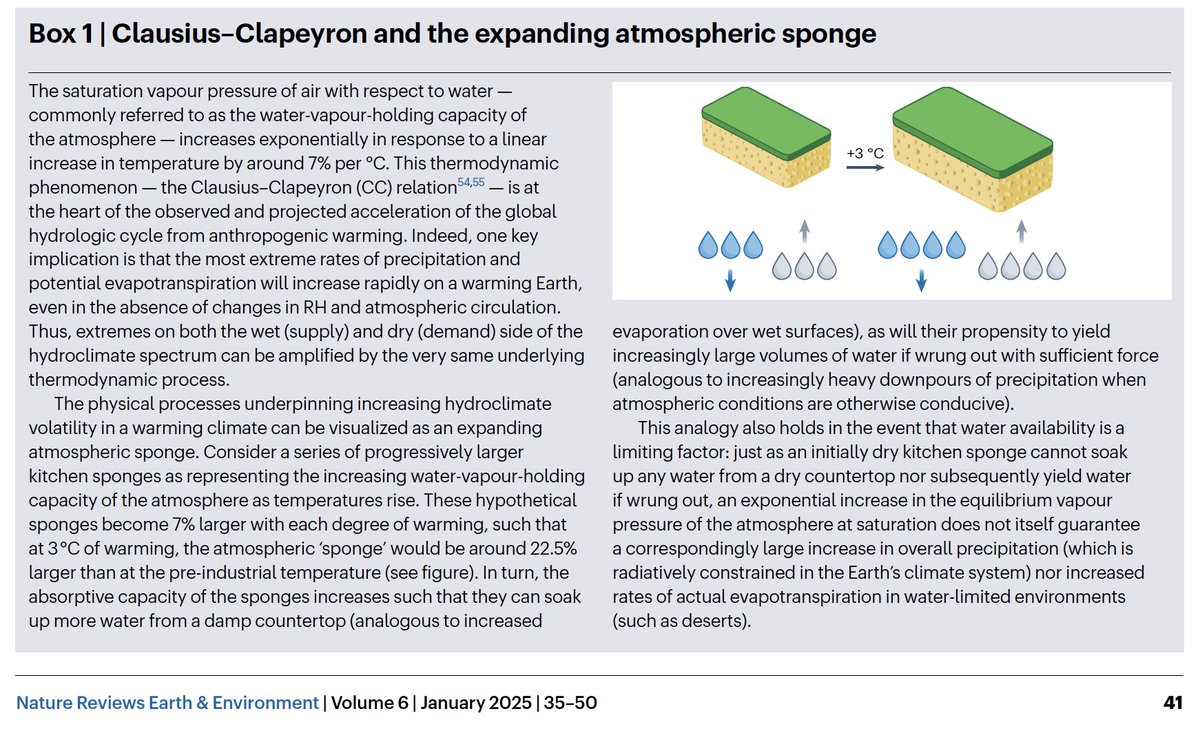The images and stories just beginning to emerge from eastern TN and western NC in the aftermath of widespread catastrophic flooding wrought by #Helene are genuinely horrifying, and the full scale of the disaster is likely as yet untold. #TNwx #NCwx [Thread: 1/n]
20-30 inches--and perhaps locally 40+ inches--of rain fell along highest ridges of the Southern Appalachians due to 1-2 punch consisting of extreme "predecessor rain event" (PRE) that was historic in its own right followed by further extreme rain directly from #Helene. [2/n]
This was, by far, the most extreme rain event in observed record across much/most of the region, where reliable records date back over 100 yrs. Unsurprisingly, the flooding which resulted has also been widespread, historic, and generally catastrophic across a broad region. [3/n]
These floods, which were concentrated in valleys containing rivers and typically modest creeks and streams, involved extremely large volumes of water moving downhill at high velocity. This was not a gradual or "gentle" inundation by any means. [4/n]
From footage that has emerged, it's clear that some smaller towns and some neighborhoods within larger population centers were essentially wiped off the map--with many/most structures in these areas completely destroyed and even washed away. [5/n]
Most, if not all, major roadways in the region remain impassable. Multiple major highways and even interstates will likely be closed for weeks to months as major bridges have been severely damaged/destroyed and many embankments/hillslopes have eroded or collapsed. [6/n]
For a time yesterday, it appeared that multiple substantial and "high hazard" dams might fail entirely--sending large walls of water downstream and presenting an even greater disaster. Fortunately, it appears that catastrophe was narrowly averted--but only just. [7/n]
Nevertheless, it's already clear that human toll is high & will likely rise further once access & telecommunications are gradually restored. This is a major regional flood disaster on a scale we haven't seen in some time in U.S., & many communities have been devastated. [8/n]
I'm writing this thread for a few reasons. First, I think it's important to recognize that this event is a disaster of national significance and will require large-scale response in both short and long term. "No news" is not good news in this case--quite the opposite. [9/n]
Also, for my West Coast audience, I wanted to reflect on this event in the context of #ARkStorm 2.0--a hypothetical but plausible catastrophic flood scenario we've developed for California, with the intent of improving preparedness and planning for such an event. #CAwater [10/n]
The Sep 2024 event in Southern Appalachians has had "ARkStorm-level" impacts in eastern TN & western NC. Widespread, catastrophic flooding has resulted; many lives have been lost; transport, electric, telecomm infrastructure is devastated; some towns are completely isolated. [11/n]
These are the type and magnitude of impacts we would likely see during an ARkStorm-like event in California. It's possible such effects could be even more widespread, and affect more people, than this Southern Appalachian disaster, but the general point holds. [12/n]
I & others who have worked on ARkStorm's multiple iterations over the years have received quite a bit of pushback from a variety of sources: "This is ridiculous; it could never happen!" "California gets droughts & wildfires, not floods!" "You're such a fearmonger!" & etc. [13/n]
Those criticisms are, of course, not based in any kind of observable scientific reality! Consider, for example, California's Great Flood of 1862 (or any number of even larger events that lurk in the paleoclimate record). It's a question of when, not if, in the long run. [14/n]
But I this speaks to a common refrain--one that becomes particular dangerous on a warming Earth and amid a non-stationary climate: "It can't/won't happen here!" "If it does happen here, it won't be that bad." "This town's been here for 150 years--we've seen everything already!" [15/n]
That's not to say that climate change is solely responsible for this or any other disaster, of course, although there are crystal clear links between climate warming and consequential increases in precipitation extremes (particularly the most severe events--like this one). [16/n]
As always, other factors are also at play: Expanding populations into known & extant floodplains as well as artificial modification of river channels; old and crumbling infrastructure built decades ago; differential societal exposure via economic inequity, and etc. [17/n]
But sometimes "worst case" scenarios really do come to pass, and I think we often lack the collective imagination to fully envision what that looks like. That's a problem, because being honest about risks that exist is first step toward mitigating them & preventing harm! [18/n]
Ultimately, there many folks in FL, GA, NC, & TN who are in need of urgent assistance--and that is/should be foremost priority. But to those insisting that "this is not the time!" to have those other conversations, I say: This is *exactly* when we need to be having them. [19/n]
• • •
Missing some Tweet in this thread? You can try to
force a refresh










